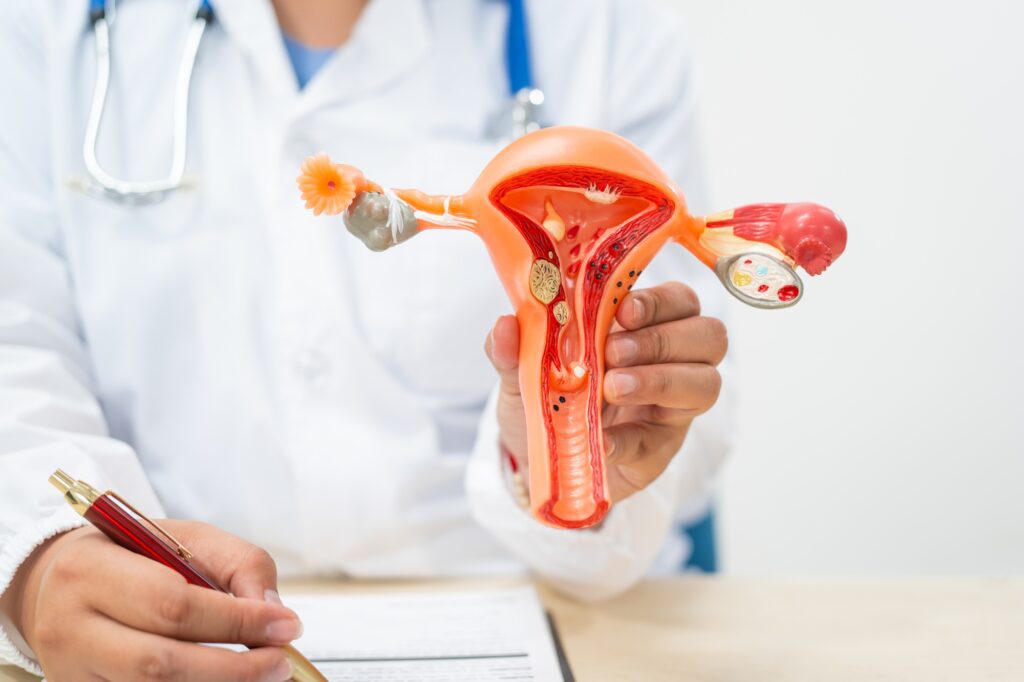
Is BioTE the Answer? Navigating Hormone Therapy for Endometriosis
Living with endometriosis can feel like a constant battle. The chronic pain, fatigue, and other disruptive symptoms can significantly impact daily life. Many women with endometriosis find themselves searching for effective treatments to manage their condition. This leads to a crucial question for many: Is BioTE the Answer? Navigating Hormone Therapy for Endometriosis. At Family Medicine Institute in Winter Garden, we understand the complexities of endometriosis and offer a range of services, including BioTE hormone therapy, which some patients explore as a potential part of their management plan when navigating hormone therapy for endometriosis.
Understanding Endometriosis and Hormone Therapy
Endometriosis is a condition where tissue similar to the lining of the uterus grows outside of it, often on the ovaries, fallopian tubes, and other areas in the pelvic region. This misplaced tissue thickens, breaks down, and bleeds with each menstrual cycle, but because it has no way to exit the body, it can cause inflammation, scar tissue, adhesions, and severe pain.
Hormones, particularly estrogen, play a significant role in the development and progression of endometriosis. Estrogen fuels the growth of endometrial tissue, both inside and outside the uterus. Consequently, many traditional treatments for endometriosis aim to suppress estrogen production or block its effects. These treatments can include hormonal birth control, GnRH agonists, and aromatase inhibitors.
Exploring BioTE for Endometriosis: Navigating Hormone Therapy for Endometriosis
BioTE hormone therapy utilizes bioidentical hormones, which are chemically identical to those naturally produced by the body. The treatment typically involves the subcutaneous insertion of small pellets that release a steady stream of hormones, such as estrogen and/or testosterone, over several months.
While BioTE is primarily used to address hormonal imbalances related to menopause, perimenopause, and low testosterone, some women with endometriosis have explored it as part of their strategy for navigating hormone therapy for endometriosis. The rationale behind this approach often involves the idea of achieving a more balanced hormonal environment. For instance, in some cases, the introduction of testosterone, alongside a carefully managed level of estrogen, might help to counteract the estrogen dominance that can exacerbate endometriosis symptoms in certain individuals.
However, it’s crucial to understand that the use of BioTE for endometriosis is not a widely established or first-line treatment. The scientific evidence supporting its effectiveness for this specific condition is currently limited, and more research is needed.
Important Considerations and a Personalized Approach
If you are considering BioTE as a potential option for managing your endometriosis, several important factors need careful consideration:
- Individual Hormonal Profile: Every woman’s hormonal makeup and response to therapy is unique. Thorough hormone testing is essential to understand your specific levels and identify any imbalances.
- Type and Severity of Endometriosis: The location and severity of your endometriosis can influence the effectiveness of any treatment.
- Previous Treatments: Your history of previous endometriosis treatments and your response to them will be an important factor in determining the best course of action.
- Potential Risks and Benefits: As with any medical treatment, BioTE carries potential risks and benefits that need to be discussed in detail with your healthcare provider.
- Multimodal Management: Endometriosis is often best managed with a multimodal approach that may include lifestyle modifications, pain management strategies, and, in some cases, surgical intervention alongside hormonal therapies.
At Family Medicine Institute, our approach to endometriosis is comprehensive and personalized. We take the time to understand your individual symptoms, medical history, and treatment goals. If you are interested in navigating hormone therapy for endometriosis and are curious about BioTE, we encourage an open and honest discussion to determine if it might be a suitable option for you, in conjunction with other established endometriosis treatments.
Living with endometriosis can be challenging, but you don’t have to navigate it alone. If you’re exploring different treatment options and are wondering, “Is BioTE the Answer? Navigating Hormone Therapy for Endometriosis?”, schedule their appointment with our experienced team at Family Medicine Institute in Winter Garden. We can discuss your specific situation, answer your questions, and help you develop a personalized management plan that addresses your needs. Call us today at 321-221-0801.
